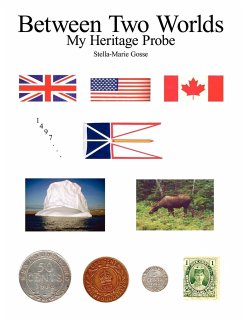Colorful coastal scenery (iceberg; lighthouse, etc.); photos of real persons, some from the 1800s; sketches and snapshots of quaint tools, seen now only in museums ... Together they make up a pictorial introduction to Newfoundland (NL). The written text tiptoes through more than 500 years in time, from European discovery (1497) to just beyond millennium two. It''s a reminder of significant historical events where this large island in the North Atlantic has been used as a link - a stepping stone -between Europe and Continental North America: the landing of the submarine communications cable across the Atlantic (1866); Marconi''s wireless apparatus (1901); pioneering flights in the skies over the Atlantic (Alcock and Brown, 1919; Earhart, 1932 ...); USA defense bases (WWII) ... even a safe haven during the horrors of 9-11-01 ... Despite Britain''s initial anti-settlement laws, the oppressed colony grew. Through determination, grit and fortitude, notable colonists "battled" their way to political independence within the Commonwealth - elected representatives; NL Prime Minister, one succeeding another, and another ...; NL minted currency; NL postage stamps ... Foreign investors became attracted to the potential of natural resources. Viable mines and paper mills became realities; railway lines and coastal shipping routes were established ... Britain was supported during WWI (1914-1918), both financially and with human lives ... Then the world''s Great Depression (1930s) hits. Politically, the story turns grim here, even fatal ... Did the extended "lifeline" have a noose attached to its receiving end? Could things have been managed in a more compassionate manner? Question after question arises.








